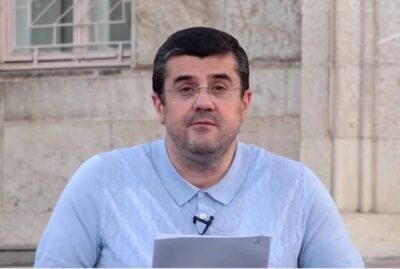STEPANAKERT — President Arayik Harutyunyan of Artsakh at a press conference on July 24, spoke about the misery that his people were experiencing and appealed to the world community to remedy this unacceptable situation.
He said the 225-day of the illegal blockade and 40 days of total siege show that Azerbaijan does what it pleases. “It is evident that Azerbaijan, under the conditions of international impunity, continuously tightens repressions against the people of Artsakh with the undisguised purpose of ethnic cleansing, driven by a policy of ethnic hatred and discrimination. During this time, the International Court of Justice and the European Court of Human Rights have issued legally and politically binding rulings to ensure an unimpeded movement of people, vehicles, and cargo through the Lachin Corridor in both directions. Furthermore, the European Parliament, the Parliamentary Assembly of the Council of Europe, various states’ legislative and executive authorities, and authoritative international human rights organizations have all made clear demands and appeals to the authorities of Azerbaijan to cease the illegal siege of Artsakh and refrain from using force or threats of its use. However, Azerbaijan has not only disregarded court rulings and the demands of the international community but has also expanded and deepened the blockade and military threats.”
He said that the siege’s aim is to “destroy in whole the entire ethnic Armenian population of Artsakh and forcefully end the conflict by eliminating the people of Artsakh from their land.”
In addition, the medium-term goal of Azerbaijan is “to subjugate the people of Artsakh by force, dismantle the Republic of Artsakh and its resistance systems, force the people of Artsakh to flee, collapse the economy of Artsakh, and gain additional leverage over Armenia, particularly by obtaining an extraterritorial road between Azerbaijan and Nakhichevan through Armenian territory.”
He noted that not only is the border blocked, but that through the use of disrupted services such as gas, water or electricity, and through random shooting of agricultural workers, “an atmosphere of uncertainty and fear” has been created.
Harutyunyan continued, “As a result of the blockade, we are currently witnessing a humanitarian disaster that affects all aspects of life, from food and healthcare to agriculture and education. Human lives are at risk, from newborn babies to elderly chronic patients, due to the direct and indirect impacts of the blockade.










